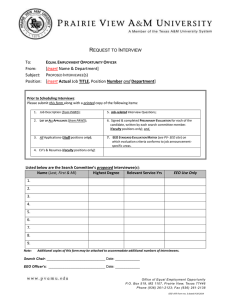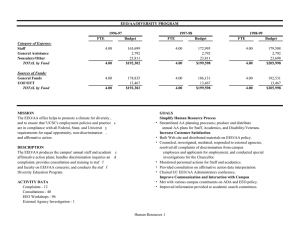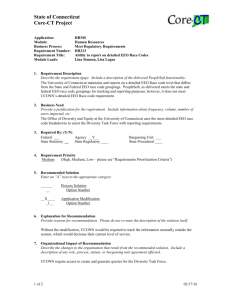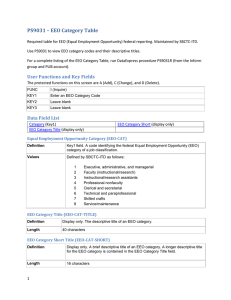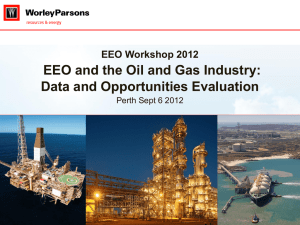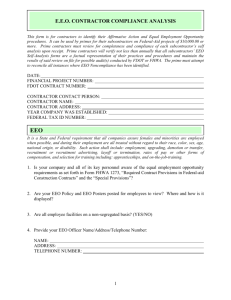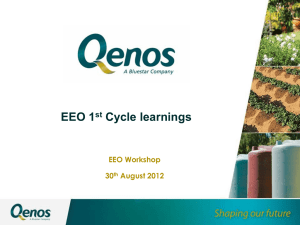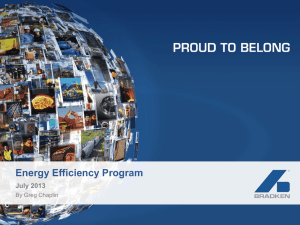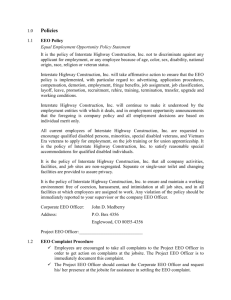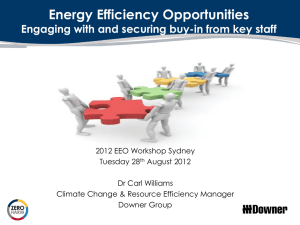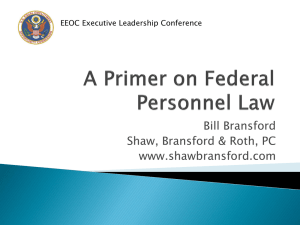PPT 5.3MB - Energy Efficiency Opportunities
advertisement
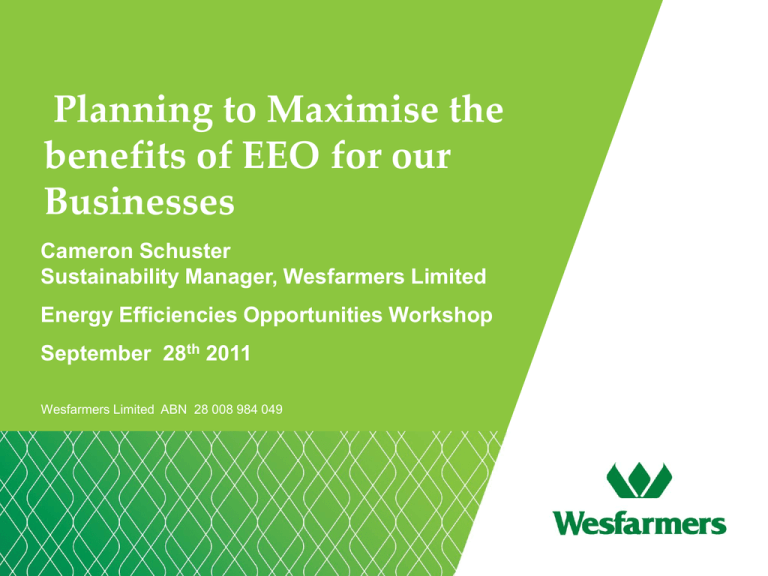
Planning to Maximise the benefits of EEO for our Businesses Cameron Schuster Sustainability Manager, Wesfarmers Limited Energy Efficiencies Opportunities Workshop September 28th 2011 Wesfarmers Limited ABN 28 008 984 049 Maximising the benefits of EEO processes About Wesfarmers Limited • ASX listed company with FY 10 revenues of $55B and NPAT of $1.92B; • approximately 199,000 staff and 490,000 shareholders; • operates in several areas of the economy including retail (Coles, Bunnings, Target, Kmart, Officeworks); resources; insurance; and industrial (chemicals, energy and fertilisers; industrial and safety); • Energy use is 42Pj/annum (NGER Act) or 34 Pj/annum actual; • Carbon emissions are 5.14 Mt/year (NGER Act) or 6.5 Mt/year (Scope 1,2 and 3 plus NGER Act exclusions); • Significant public reporting including sustainability reports since 1998,annual reports, CDP, DJSI, Forest Footprint Disclosure, EEO Act and GRI 2 3 Portfolio of leading brands Retail Businesses Insurance Industrial Businesses Maximising the benefits of EEO processes 4 Our Approach to the EEO Act • We took the view that the EEO Act was a useful method to focus on energy efficiency outside our high energy intensity industries; • Sustainability has accountability but the Divisions are responsible for their own actions; • We have developed and regularly review a set of procedures to ensure consistent approaches across the Group; • We have always assessed more than 92 per cent of our energy use but exclude our many smaller facilities that have many different formats eg Coles Express, Industrial and Safety Division; • Training and information within the Divisions and expert assistance; • Provide assurance on process to the Board with EEO Act report. Maximising the benefits of EEO processes 5 Our reporting processes and learnings over time • The system is designed to meet EEO Act requirements but we don’t drive energy efficiency with EEO as our management system; • Essentially because of the differences across the Group; • Each Division involved developed their own plan, contributed to the ARS and is responsible for actions; . We have implemented EEO through our normal business and budgeting processes to ensure the actions happen; . The EEO reporting process is cumbersome for Wesfarmers but we understand why it has to be that way; • All supported by extensive energy efficiency/emission reduction processes driven by energy cost or emission reduction Maximising the benefits of EEO Processes Some of our successes and annual savings . Night blinds on upright refrigerators in Coles (217,000 Gj); . Kleenheat LPG compressor utilisation (20,000 Gj); . Process optimisation in an ammonia plant (45,000 Gj); . Heat reflective roof treatment for Bunnings in the tropics (1900 Gj per store); . Insulation of steam lines at CSBP (900 Gj); . Energy efficient lighting in Target stores (5,500 Gj); . The representative assessment model has been very useful in several of our businesses with large, comparable facilities. 6 Maximising the benefits of EEO processes Summary • The EEO Act has placed a welcome focus on energy efficiency; • It could be useful as a management system but not for businesses that are either energy intensive or large users; • Did not include all our facilities, principally because with large numbers of slightly different formats it would be very complex and the technologies we use are essentially simple; • Energy efficiency in Wesfarmers clearly has to be part of our operational/business management processes to be successful ; • Thank you for listening 7
